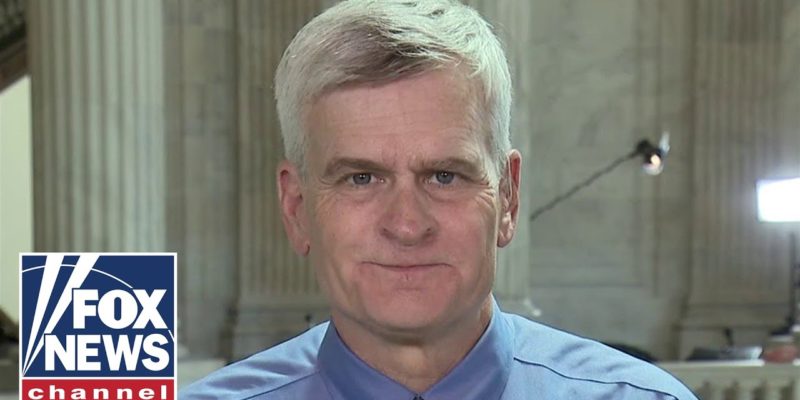The widely hailed bipartisan “infrastructure” bill (2,702 pages long) that passed the Senate this past week, at a cost of $1.2 trillion, contains comparatively little funding—only about 23% ($548 billion)—for traditional “hard” infrastructure like roads, bridges, tunnels, ports, rail, highways, interstates, waterways, and the electric grid. Instead, the large majority of the bill’s funding will be used for so-called “green energy” projects—including those contained in the Green New Deal—and entitlement spending. The Congressional Budget Office has estimated that this bill would increase federal deficits by $256 billion over the next decade.
U.S. Senator Bill Cassidy has been one of the architects of the $1.2 trillion plan and has touted the benefits in the bill for Louisiana, stating he believes “this is Louisiana’s chance to catch up in areas that we’ve fallen behind in and position our state’s economy to move forward in the future…”
However, as U.S. Senator John Kennedy has noted, the bill “…raises $14.5 billion in new taxes over ten years on petrochemical manufacturers” which includes Louisiana having to pay “roughly $1.3 billion in new taxes on an industry (oil and gas) that supports 100,000 jobs in our state.” Kennedy, who opposes the bill, also noted the inflationary impact of the bill, stating “it is an inflation bomb, it is going to raise Louisiana prices at the gas pump and grocery store, and that is a tax, … inflation is a tax that hits working people the hardest.”
[A highly disconcerting issue is the “linkage” between this bill and the mind-numbingly monstrous $3.5 trillion “human” infrastructure bill of Sen. Bernie Sanders that Democrats are bringing up next that they plan to get passed through a legislative device called “reconciliation” requiring only a simple majority to pass the Senate. And, while he later “revised” his comment, Pres. Biden first said he was not going to sign this $1.2 trillion bill without also signing the $3.5 trillion bill in tandem.]
Please allow me to address something else. National Democrats have argued that “the Trump tax cuts added trillions to the debt,” so they can too. That’s simply not true. After the Trump tax cuts, the economy exploded! It grew faster—and the federal government received MORE revenue—than before the tax cuts. The problem is that House Democrats spent all of these new tax revenues and then added still more spending on top of that. If President Trump hadn’t signed their spending bills, the government would have shut down, causing chaos. Let’s remember our civics: the U.S. House has the power of the purse and with Speaker Pelosi in control of the House, they have insisted on spending more and more with a reckless disregard for the finances of the government.
Perhaps the most disappointing thing of all is that while Congress is a highly partisan institution, traditional infrastructure legislation and funding have historically been truly bipartisan issues and this opportunity is being squandered on mostly non-infrastructure related funding.
Advertisement
A second disappointment is that the bill is filled with financial gimmicks and “smoke and mirrors” to create the impression that the “pay-fors” (i.e., the false claim that the bill pays for itself) included in the bill are real: like the fiction that savings will result from delaying a Medicare rule or extending by a decade a guarantee fee that government institutions Fannie Mae and Freddie Mac charge on mortgages they back. Also, senators had initially agreed to use $205 billion in unused, repurposed Covid funds in the bill but when some of the liberal states refused to do so only $43 billion in Covid funds were used.
A third disappointment contained in the bill is the enormous amount of additional federal dollars given to bureaucratic federal agencies to reconstruct the economy in their Leftist “vision.” The Department of Energy, Federal Emergency Management Agency (FEMA), National Park Service, the Fish and Wildlife Service, Forest Service, and the Environmental Protection Agency (EPA) will all receive billions in new funding. This will allow them to further intrude into issues and decision-making that should be reserved for state and local government policymakers. Issues like drinking water, private sector broadband and the determination about location and type of electric vehicle charging stations.
There is a very high price to be paid for the federal expansion, increased deficits, and gargantuan cost of this bill. Generations of Americans will be burdened with it. We must honestly ask ourselves if this is the best way to meet the great needs of our beloved Louisiana.
Advertisement
Advertisement

